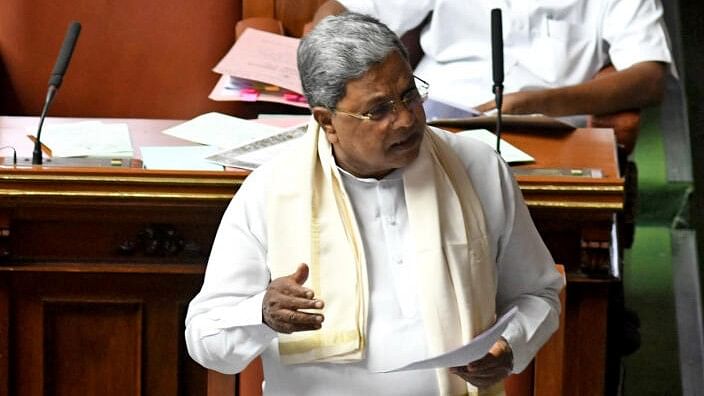
Chief Minister Siddaramaiah spoke in the Monsoon Session of the Karnataka Assembly on Monday.
Credit: Information Department Photo
The Siddaramaiah-led Congress government in Karnataka faced stiff opposition from industry and other quarters on Wednesday after news reports said that the Karnataka Cabinet had prepared a Bill aimed at providing reservations in private sector jobs for local candidates. Thankfully, and perhaps after realising its blunder, the government has temporarily put on hold the Karnataka State Employment of Local Candidates in Industries, Factories and Other Establishments Bill, and a decision on it would be taken only after it is further discussed in the Cabinet. The Bill had proposed to reserve for Kannadigas 50% of all jobs in the management category (managerial and supervisory positions), and 75 per cent in the non-management category (clerical, skilled, unskilled, contract and casual jobs).
A similar law passed by the Bharatiya Janata Party (BJP) government in Haryana was declared unconstitutional and struck down by the Punjab and Haryana High Court in 2023. Striking down the Haryana State Employment of Local Candidates Act, 2020, which guaranteed 75% reservation for locals in the private sector, the high court held that the law creates an intrusion by the state government into the fundamental rights of employers to carry on their business and trade under Article 19 of the Constitution. The judges held that notions about individual rights must be in accordance with the text and spirit of the Constitution, and not on popular majoritarian notions. The State cannot direct private employers to do what is forbidden under the Constitution. It cannot discriminate against individuals who do not belong to a certain state as it amounts to discrimination against other citizens of India, the court held. The Karnataka Bill falls into the same bracket. The draft Bill also infringes upon Article 14 (equality before law), as a fundamental wedge is sought to be created between people domiciled in different states, which is contrary to the concept of common citizenship provided in the Constitution.
If the Congress government was floating a trial balloon, it has received clear feedback: Industry leaders and bodies, including Nasscom, expressed apprehension and shock over the proposal on the grounds that it would deter talent and investment from flowing into the state, besides leading to a flight of capital. The government said it would allay the fears of the industry, but this should have been done before moving ahead with such draft legislation. While the government provided for some exemption in the case of skilled talent, the very foundation of the proposal appears shaky. This jingoistic move is ultra vires of the Constitution. It may help politicians pander to their electorate in the short run, but can have disastrous consequences on the economy. As such, it deserves to be binned in the larger interest of Karnataka.